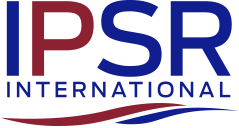Responsibilities of TWG Chairs
The IPSR Roadmaps encompass more than just a projection of the evolution of manufacturing technology. Large end user companies provide an outlook on what their technology product needs are going to be over the timeframe of the roadmap. This is accomplished by providing information on product emulators to the Technology Working Groups (TWGs). While technology needs are discussed, specific company product plans are avoided.
The roadmap document is made possible by volunteers from the photonics-electronics industry (members and non-members of AIM Photonics) that form groups and committees to develop chapters for the TWGs. The TWG chapters cover technical areas based on the end users’ needs detailed in the four PEG chapters. These emulators provide a collection of key attributes that are required to design, build and test a virtual product set as forecast out over 15 years.
The current list of TWGs is:
- Monolithic Integration
- Packaging of Electronic-Photonic Systems
- Connectors
- Assembly
- Test
- Substrates
- Electronic-Photonic Design Automation
- Photonic Sensors
TWG Tasks
The TWGs will use the end user requirements from a business and technology perspective (as detailed in the four PEG chapters) in their preparation of a roadmap chapter detailing where they stand - and expect to progress over the next 15 years - with respect to the stated needs. The TWG chapters will also identify any gaps between the forecast needs of the emulators and the capabilities and also prepare a list of options (including R&D) to address those gaps.
TWG Chairs are tasked with assembling a committee, organizing meetings (telecons or webinars), writing the chapter draft, acting as the primary interface with the responsible IPSR staff and attending, or arranging for an attendee, at a maximum of two required face-to-face meetings during the seven-month roadmap cycle. These face-to-face meetings are held to discuss progress of the chapter or actually collaborate on cross-cut issues with other Chairs in the development of all the chapters. The product of this work will be a technical/business chapter that follows accepted IPSR chapter formats for arrangement and content by the specified deadline.
In addition, TWG Chairs are responsible for securing a speaker four times per year for the IPSR Roadmapping Webinar Series. These webinars feature a 30-minute presentation followed by discussion and are intended to develop trust, cooperation, and shared objectives
Reasons given by current TWG Chairs for their on-going dedication include; the opportunity to help focus the future direction of technology evolution, the early knowledge of the roadmap product and all that brings to them and the companies they represent – but mostly the number of new industry colleagues they are privileged to meet and work with every roadmap cycle. It is also important to have management support from a chair’s company due to the required hours of work and limited travel required to fulfill the duties of a TWG Chair.
Estimate of Time Commitment
Spring and Fall IPSR Roadmap Workshops held in Cambridge Massachusetts. Each workshop is 1 ½ days long.
Each TWG Chair is asked to attend bi-weekly TWG Leadership calls which last for 1 to 1 ½ hours. In addition to this time, effort will be required to conduct TWG conference calls and edit the document during the period from February/March through completion of chapter (end of September). While each group sets its own work patterns, the following is a reasonable estimate of time required:
- Conference calls:
2 times per month for 1-2 hours.
At end of cycle (last few weeks), can be more frequent as chapter is assembled.
Effective TWG leaders will usually break up writing assignments and development of attributes to members of committee. Chair and Co-Chair of committee can then focus on editing chapter and writing summary/conclusions.
- Editing time estimate:
16-24 hours over one month period.
After the chapter is submitted, TWG Chairs/Co-Chairs may be consulted from time to time as overall roadmap is integrated and overall executive summary is created. This activity is usually limited to a few phone calls and, potentially, small clarifications/additions to chapter.
Once the IPSR Roadmap is released, some TWGs use their chapter as the basis for industry presentations and/or articles. IPSR has staff resources to help facilitate these optional tasks.
